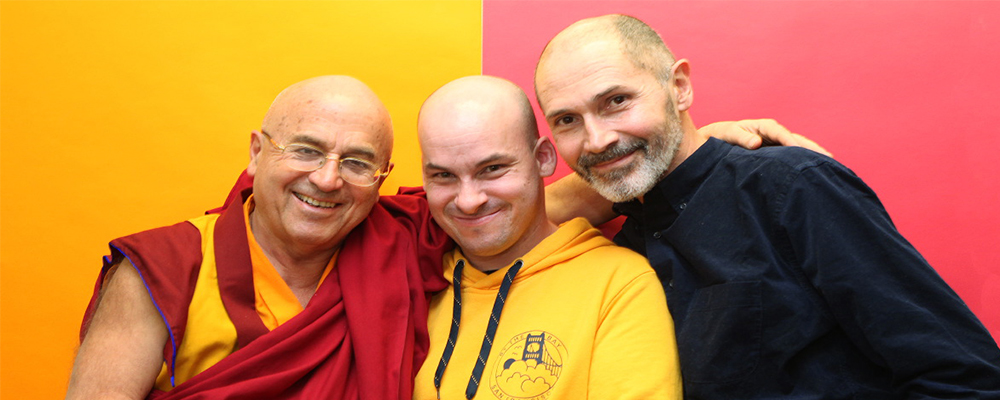
Matthieu and two amazing friends and authors, Psychiatrist Christophe André and Philosopher Alexandre Jollien discuss their advice for how to deal with emotions.
Excerpted from the new book, In Search of Wisdom.
MATTHIEU
• Sharpen your attention in order to become aware of negative emotions the very moment they arise. It is easier to put out a spark than a forest fire.
• Get to know the emotions better. Train in distinguishing those that contribute to your well-being and the well- being of others from those that destroy it.
• Once the harmful consequences of negative emotions appear clearly, familiarize yourself with their antidotes, the positive emotions.
• Cultivate the positive emotions until you become one with them.
CHRISTOPHE
• Love all of them. All the emotions are signals of our needs. The positive emotions tell us that our needs are satisfied or on the way to being so. The negative emotions tell us that they are not satisfied. Listen to, and reflect on, what is happening with your basic needs in order to act.
• Cultivate the pleasant emotions. Take care to nourish them in a way that is beyond the automatic mechanisms of your habits. Studies have shown that experiencing two to three times more pleasant feelings than unpleasant ones is an optimal balance, and a realistic one (you can’t always be in a good mood).
• Don’t get discouraged. It is one of the great tasks in your life to work on your emotional balance. And you will regularly have relapses; you will once again fall prey to absurd fits of anger, inappropriate fears, and exaggerated sadness. You have to take into account from the very beginning that the journey will be punctuated with these lapses. That’s why I detest sayings such as “A leopard cannot change its spots” that tell us we can never change. We are in a training period, an apprenticeship, therefore we have to accept these relapses. There are no shortcuts on this journey. But you always get to your destination if you keep walking.
ALEXANDRE
• Let it pass. Zen encourages us not to consider emotion as an enemy. Thus spiritual practice consists in not getting on the train of negative emotions but watching its cars pass by. “Hey, here’s anger.” “Hey, here’s fear.” Daring nonfixation allows us to get through storms without carnage. It’s no big deal if anger, fear, or sadness pay me a visit. Provided that they never set up housekeeping in my heart. So a thousand times a day, let it pass.
• Practice. Learning to swim, to float, and to calmly watch
the waves go by takes time — lots of time. Peace comes inch by inch. That is why it is necessary to devote yourself to practice daily.
• Clear out the temple of your mind. For a long time I thought that happiness came from victory. Today I think instead that it’s a matter of clearing ourselves out. Rather than accumulating skills or knowledge, we must get free
of all the things that weigh us down: habits, reflexes, fears, cravings . . . The nugget of happiness, of true joy, lies beneath tons of mud. So let’s throw out all that useless stuff and turn the obstacles of life into skillful means for getting through to that joy.
CHRISTOPHE ANDRÉ is a psychiatrist
specializing in the psychology of emotions.
His books include Looking at Mindfulness
and Feelings and Moods.
ALEXANDRE JOLLIEN is a philosopher
and writer who spent 17 years in a home for
the physically disabled. His books include
In Praise of Weakness (printed in Canada).
MATTHIEU RICARD is a Buddhist monk,
photographer, and former molecular geneticist
who served as an interpreter for the Dalai Lama.
His books include The Monk and the Philosopher,
Happiness, and The Art of Meditation.